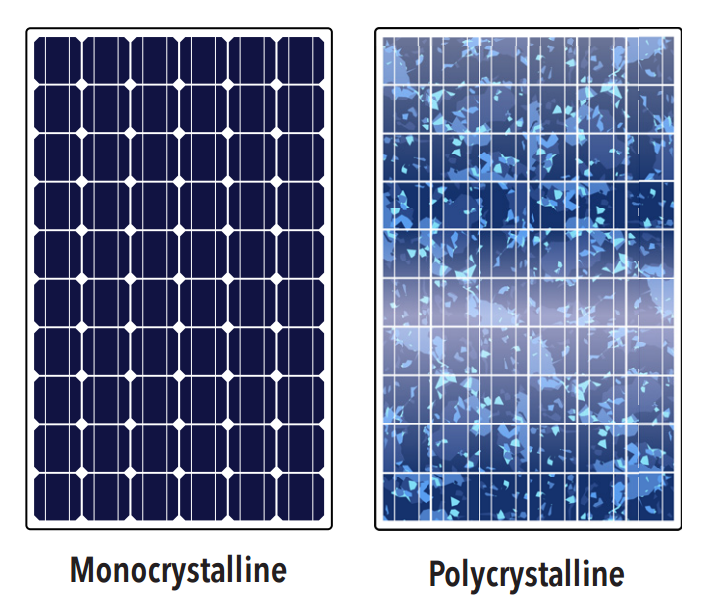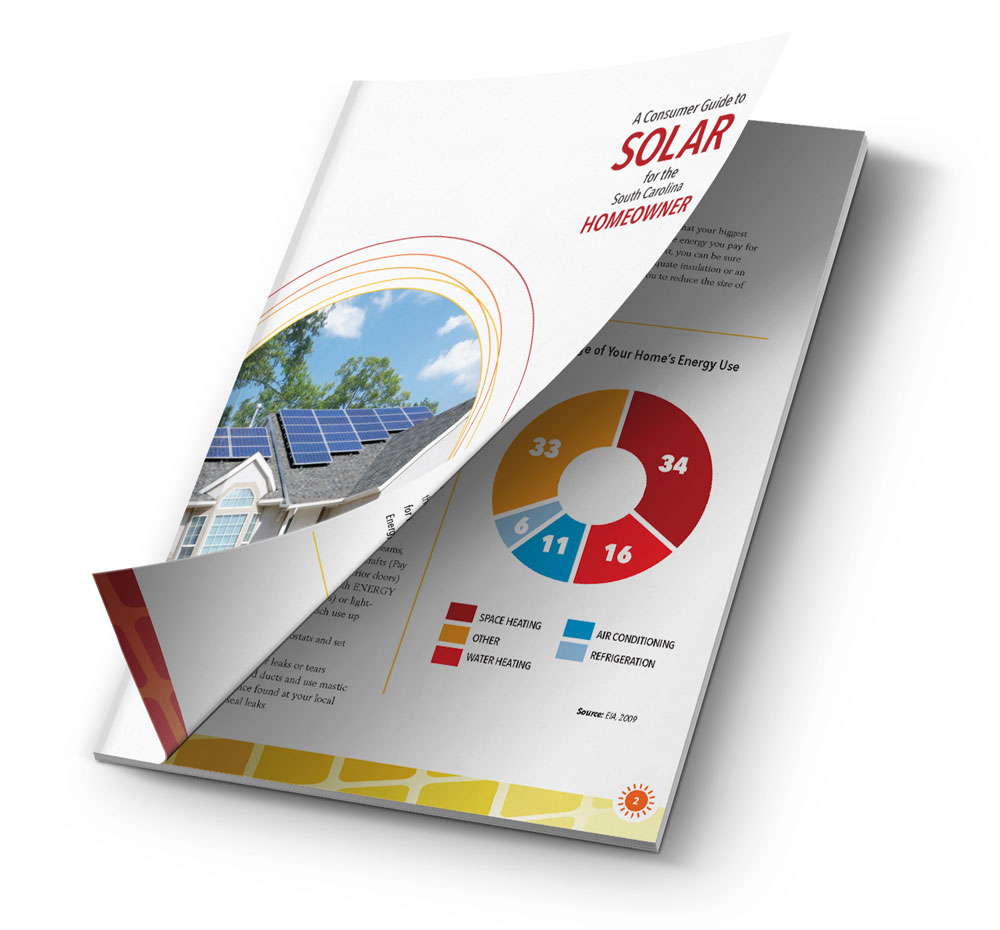Solar panels allow us to generate energy by using the sun. Throughout the day, cells within a solar panel absorb energy from sunlight and generate electricity. Consumers can use that electricity in their home, store it in a battery, or send it back to the grid.
 Solar Panel Technologies
Solar Panel Technologies
Solar panel technology is changing and improving rapidly. The most common type of solar panel is a silicon panel. More technologies are emerging as researchers are striving to make more efficient panels. More on solar panel technology can be found at the resources below:
- National Renewable Energy Laboratory (NREL)- Solar Photovoltaic Technology Basics
- Energy Sage- Types of Solar Panels
Consumer Guides
 Consumer Guide to Solar for the SC Homeowner
Consumer Guide to Solar for the SC Homeowner
The Consumer Guide to Solar for the SC Homeowner, published by the Energy Office, is intended to help educate consumers about the many factors to consider before, during, and after installing solar panels on their homes. It is not meant to be a technical resource on how to design or install a system. Homeowners will need to consult with an experienced solar contractor to determine the best system for their property and their home’s energy needs; the guide provides resources to assist in the selection process. The Energy Office does not endorse any products or service providers.
CESA Solar Information for Consumers
The Clean Energy States Alliance (CESA) Solar Information for Consumers provides information and educational resources to help states and municipalities ensure that distributed solar electricity remains consumer friendly and its benefits are accessible to low- and moderate-income households.
SEIA Residential Consumer Guide to Solar Power
The Solar Energy Industries Association (SEIA) Residential Consumer Guide to Solar Power informs potential solar customers about the financing options available, contracting terms to be aware of, and other useful tips.
USDOE Homeowner’s Guide to Going Solar
The US Department of Energy (USDOE) Homeowner’s Guide to Going Solar provides basic resources for consumers considering solar energy.
LSU Agricultural Center Solar Power for Your Home: A Consumer’s Guide
Louisiana State University (LSU) Agricultural Center’s Solar Power for Your Home: A Consumer’s Guide helps consumers explore various solar energy options, ask important questions, and make well-informed decisions.
USDOE Farmer’s Guide to Going Solar
USDOE’s Farmer's Guide to Going Solar includes questions that farmers should ask solar installers and contractors when considering installing solar energy.
Additional resources for farmers can be found in: